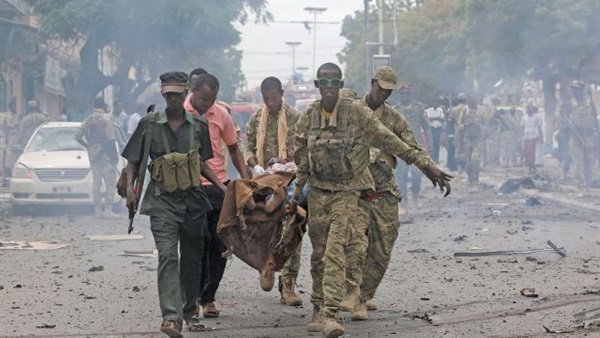|
Getting your Trinity Audio player ready…
|
Leaders and representatives of Social Movements and Civil Society Organisations in the Southern African People’s Solidarity Network (SAPSN) met during a virtual “SADC Solidarity Summit with the People of Mozambique” where they indicated that the natural resource conflict was precipitated by the discovering and concessioning of gas deposits to multinational oil companies.
The CSOs were concerned that the imminent approval of SADC’s military intervention by Heads of State may well further escalate the conflict, not only locally in Cabo Delgado but across the region, given the potential for insurgent blowback in Southern Africa’s vulnerable cities. Furthermore, the history of sub-imperial military interventionism by two main SADC armies, the South African National Defence Force and Zimbabwe Defence Force, CSOS said, shows a tendency to mainly protect elite economic interests (especially Johannesburg and Harare firms linked to the respective ruling parties, engaged in extractivist operations in the DRC and the Central African Republic).
“This recent history, alone, renders both morally inappropriate to intervene in Northern Mozambique, especially on behalf of multinational oil corporations from South Africa, France, the U.S., Italy, China and South Korea. We also have a concern about their roles in repressing their own countries’ civilians on their home turf, most recently to prosecute Covid-19 lockdowns with inadequate sensitivity to desperate conditions. Corruption and incompetence in the SANDF and ZDF are also notorious, and the poorly-paid Mozambican army itself was accused by many civilians of looting Palma after the insurgents departed. Given their records, as well as the neocolonial role of U.S. and Portuguese military “trainers”, the SADC intervention force is a recipe not for peace-keeping but for new types of conflict generation,” the CSOs noted.
They argued that an Islamic-extremism theory, added to a narcotics-trafficking theory, is usually advanced to explain the insurgency. These theories, especially as promoted by the U.S. State Department in recent weeks, wrongly define the problem. These people are accused of sowing the seeds of Islamophobia in Mozambique and in the region.
“Christians and Muslims have peacefully coexisted in Cabo Delgado, and elsewhere in Southern Africa, for centuries. As such we refuse narratives that obscure the roots of the conflict which are the militarist mode of enclave-based extractivism, which amplify existing social and economic inequalities and the standard accountability deficits evident across Africa’s extractive sector.”
The CSOs reiterated their position that Southern Africa is not for sale. They condemned regional leaders’ irresponsible granting of unaccountable resource concessions, tax incentives, and investment deals. The CSOs are of the view that such deals between local elites and extractive industries are exceptionally destructive throughout the region, as they violate the rights of future generations to the natural wealth now being depleted by institutions with track records of corrupting African leaders. Through the extractive industries’ Illicit Financial Flows alone, several tens of billions of dollars are annually secreted out of Southern African economies. It is partly for this reason that the “Right to Say No!” to extractive industries resonates in so many places.
